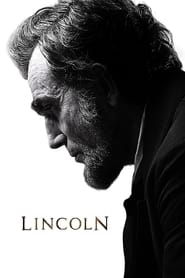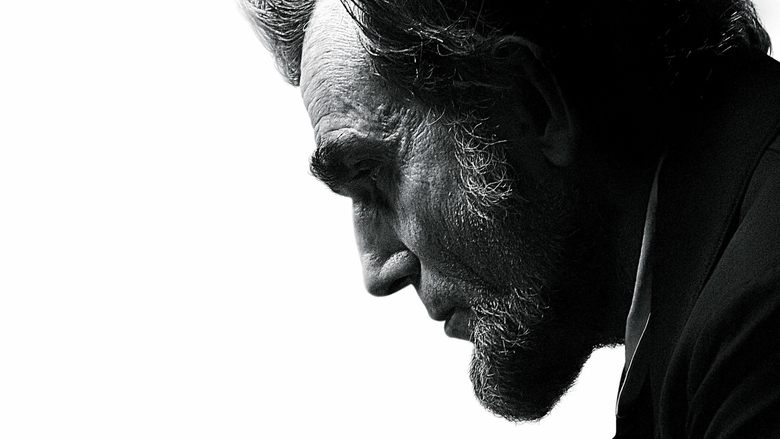“Lincoln 2012” is a cinematic masterpiece depicting the final months of President Abraham Lincoln’s life as he navigates the treacherous waters of politics in order to abolish slavery. This film is a powerful and poignant portrayal of one man’s unwavering commitment to justice and equality in the face of seemingly insurmountable obstacles. With stunning performances, breathtaking cinematography, and a gripping storyline that keeps you on the edge of your seat from beginning to end, “Lincoln 2012” is not just a movie – it’s a cinematic tour de force that will leave you breathless.

CLICK HERE⤓⤓⤓🎥_Watch Lincoln 2012 English Subtitles_
Review
Lincoln, the 2012 historical drama directed by Steven Spielberg, is a film that has been applauded and celebrated by many. Its depiction of one of the most important periods in American history and its incredible ensemble cast make it a standout piece of cinema.
Set during President Abraham Lincoln’s last months in office, the movie follows his efforts to pass the Thirteenth Amendment to the Constitution, which would abolish slavery in America. The film is based on a screenplay written by Tony Kushner, who spent years researching for this project.
From its opening scene to the closing credits, this movie manages to convey an epic story with remarkable grace. Spielberg’s direction masterfully depicts Lincoln as a man who was both pragmatic and idealistic and whose determination to end slavery led him through various political obstacles.
Daniel Day-Lewis leads an exceptional cast as Abraham Lincoln. His portrayal of the iconic president is methodical, yet he brings a sense of warmth and humanity to his performance that makes it easy for viewers to connect with the character on screen.
Day-Lewis’ powerful performance is matched by those of Sally Field (Mary Todd Lincoln), Tommy Lee Jones (Thaddeus Stevens), David Strathairn (William Seward), and Joseph Gordon-Levitt (Robert Todd Lincoln). The dialogue between actors is one of the greatest aspects of this movie with witty exchanges that can bring chuckles even to serious scenes.
The cinematography in “Lincoln” is breathtakingly beautiful – every frame captures a sense of authenticity and intimacy that places viewers right at the heart of 19th-century America. Color schemes are popular among critics with sepia tones that bring depth into each scene.
John Williams’ original score for “Lincoln” affirms his extraordinary talent once again. In particular, there’s a melancholic piano melody played during moments of quiet contemplation that suits perfectly into Spielberg’s vision for this piece.
Upon release, audiences and critics alike praised this movie for its historical accuracy and bringing to life the complex issues of slavery and emancipation during that era. The story unfolds into a compelling drama where every decision matters, with characters working tirelessly towards a common goal: ending slavery.
Despite winning two Academy Awards for best production design and best actor, some have criticized “Lincoln” for its slow pace, lengthy running time, and lack of action. However, Spielberg’s direction demands patience from his audience as it builds tension until its emotional conclusion.
It’s worth noting that the film does not shy away from the grim realities of Lincoln’s era. The brutality of slavery is depicted through graphic violence in the opening scene that should set expectations early on.
Another unique aspect of this movie is how it seamlessly blends facts with fiction. There are moments where it’s hard to distinguish what is historically accurate from what Kushner invented. But Spielberg’s vision was not to create an entirely factual account but rather a representation of history that will resonate with today’s audience.
The film also makes no attempt to hide Lincoln’s flaws as it portrays him as a man who was grappling with his own demons while trying to make history.
In conclusion, “Lincoln” deserves the accolades it received for being a fantastic movie. It tells an important story about one of America’s greatest leaders while providing outstanding performances by its cast members. Its visual approach creates an immersive experience into Abraham Lincoln’s world while displaying intense storytelling that keeps audiences engaged from start to finish.
This inspiring biographical drama proves that historical accuracy can be entertaining for audiences when told correctly. “Lincoln” will go down as one of the defining films made in the last decade, thanks largely to Spielberg’s masterful work behind the camera and Day-Lewis’s Oscar-winning performance in front of it. It is a definite must-see for anyone interested in politics or history or those who appreciated great cinema at large – perhaps even more so if you’re a fan of Ernest Hemingway’s writing.
Technical Data

- Runtime : 149
- Release : 2012-11-09
- Genre : History, Drama
- Cast : Daniel Day-Lewis as Abraham Lincoln, Sally Field as Mary Todd Lincoln, David Strathairn as William Seward, Joseph Gordon-Levitt as Robert Lincoln, James Spader as W.N. Bilbo
- Crew : John Williams as Original Music Composer, Avy Kaufman as Casting, Steven Spielberg as Director, Steven Spielberg as Producer, Kathleen Kennedy as Producer
- Popularity 16.822
- Budget : $65,000,000
- Revenue : $275,293,450
- Company : DreamWorks Pictures, Amblin Entertainment, Dune Entertainment
- Summary : The revealing story of the 16th US President’s tumultuous final months in office. In a nation divided by war and the strong winds of change, Lincoln pursues a course of action designed to end the war, unite the country and abolish slavery. With the moral courage and fierce determination to succeed, his choices during this critical moment will change the fate of generations to come.
- Tagline :
